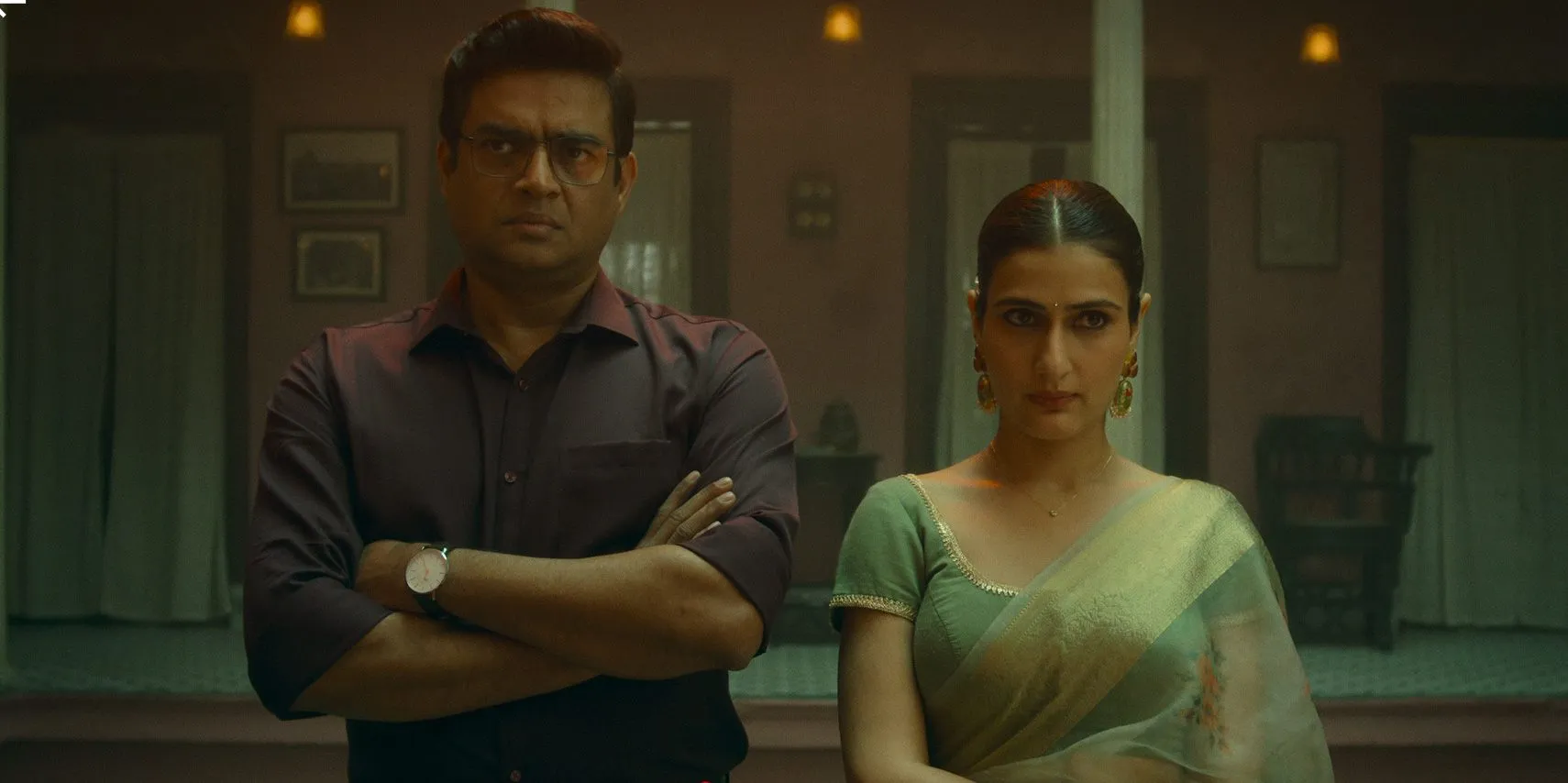Spoilers Ahead
The Vidya Balan starrer film Shakuntala Devi, which is based on the life of the eminent late genius Shakuntala Devi was released on the OTT Amazon Prime a couple of days ago. The film begins with a disclaimer which states that it is not a biography or documentary on Shakuntala Devi, but rather, this is a narrative based on a ‘true story’ as seen through the eyes of a daughter, that is, Shakuntala Devi’s daughter Anupama Banerji. In doing so, unfortunately, this film has reduced the life of the late Guinness-record-holding ‘human calculator’ to just her motherhood.
The first half of Shakuntala Devi rushes through her childhood and her early life in Europe. I presume this is probably because the narrative is based on what has been relayed to the filmmakers by Anupama Banerji, who as the film admits, had a strained relationship with her mother. However, because of this rushed story-telling, I found it hard to invest myself in Shakuntala Devi’s character, and often times, it seemed as if the character was written by someone who did not fully understand her, why she did what she did, and the intricacies of what went on in her brilliant mind.
Also read: ‘Shakuntala Devi’ And The Patriarchal Trope Of The ‘Good Mother’
This is a narrative based on a ‘true story’ as seen through the eyes of a daughter, that is, Shakuntala Devi’s daughter Anupama Banerji. In doing so, unfortunately, this film has reduced the life of the late Guinness-record-holding ‘human calculator’ to just her motherhood.
In one of the pivotal scenes of the film, Anu—played by Sanya Malhotra, is shown as confronting her mother because Shakuntala Devi uses her ex-husband to say that he was homosexual in order to promote her book on homosexuality, titled The World of Homosexuals. This scene sweeps the topic of ‘homosexuality’ and the need to talk about it under the rug and instead, chooses to focus on the troubled relationship of a mother with her daughter. The fact that Shakuntala Devi wrote a book on homosexuality and was in fact, the first to conduct a study on homosexuality in India in the late-seventies is glossed over in the movie. Moreover, the film gives an offensive and problematic explanation as to why Shakuntala Devi reached out to her ex-husband to promote her book. According to the film, personal stories allow readers to connect with the writers and this promotes book sales, which is why, Shakuntala Devi is shown as “having lied” about her ex-husband being a homosexual, which in turn angered Anu.
However, it is imperative to note here that according to several media reports, Shakuntala Devi’s interest in homosexuality stemmed from her marriage to a gay man, and this information contradicts what has been portrayed in the film. This scene alone was enough to convince me to take this movie with a grain of salt. More importantly, in her book, the late Shakuntala Devi writes: “On this level, nothing less than full and complete acceptance will serve—not tolerance and not sympathy.” This is proof that she was a champion of queer rights and that too in the seventies, but the film denies her that. Apart from this, the movie barely touches upon Shakuntala Devi’s interest in politics and astrology, and hurriedly portrays her attempt to enter Indian politics by contesting the Lok Sabha elections in 1980. We know nothing of Shakuntala Devi’s politics, and even in this scene, the movie’s entire focus is on the mother-daughter relationship.
Another interesting facet in Shakuntala Devi is the depiction of transgenerational trauma. The movie suggests that Shakuntala Devi was bitter towards her mother because of her mother’s submissive nature to her father—who was exploitative. As a result of this, she vowed to be nothing like her mother, and be the independent and confident woman that she is, who is not afraid to voice her mind. Her mother tells her that what goes around comes around, and one day Shakuntala Devi’s daughter will come to resent her just like she resents her mother. This is exactly what happens in the movie and it shows the perpetuation of transgenerational trauma in Indian families, but where the movie ended up short, is in its lack of nuance. We hardly get any insight on Shakuntala Devi’s troubled relationship with her mother except in the scene where her sister dies because the family did not have enough money to provide her medical care, and Shakuntala blames her sister’s death on her mother—for being a silent onlooker all the while, even when her father exploited her for his financial gains.
The second part of the movie walks a tightrope between career and motherhood, and we see it in Shakuntala Devi’s as well as Anu’s portrayal, especially when the latter becomes a mother and has to balance her work-life with motherhood. Though I appreciate the fact that Shakuntala Devi did not demonise a career-oriented woman for following her dreams, and it shows that rifts in families can occur in both traditional conservative families as well as in modern families; however, in their attempt to humanise the great mathematical genius, the filmmakers have relied heavily on the domestic affairs of Shakuntala Devi, particularly her maternal misadventures.
The late Shakuntala Devi led a complex life; she dared to challenge the patriarchal notions in an age and time when it was difficult for women to follow their dreams. She was successful in carving out a niche for herself in the Math community, in both India and abroad, an arena mainly dominated by male mathematicians at that time.
Also read: Shankuntala Devi: The Math Prodigy Who Researched About Homosexuality | #IndianWomenInHistory
The late Shakuntala Devi led a complex life; she dared to challenge the patriarchal notions in an age and time when it was difficult for women to follow their dreams. She was successful in carving out a niche for herself in the Math community, in both India and abroad, an arena mainly dominated by male mathematicians at that time. The movie does engage with this to some extent and asks important as well as uncomfortable questions—one such instance is when Shakuntala Devi asks her Spanish boyfriend during her early days in Europe: “Why does a woman have to need a man? Why is not my love enough for you?” However, Shakuntala Devi gives up this venture in favour of familial drama and sentimentality. In the end, Shakuntala Devi’s motherhood becomes the ultimate benchmark of her character in this movie.
About the author(s)
Soumya Mishra is a feminist researcher and writer experienced in content writing with a history of working in the online media industry. Her areas of interest include Postcolonial Theory, Genre Theory, Culture and Criticism, Gender and Sexuality Studies, and Contemporaneity. She has a Master of English Studies from the University of Sydney.





Thankyou! for this article!
It was a beautiful film.. Those who understood the film understood the geniusness andoand complexitiesScomplexities as well as all her relationships and her life..
Exactly our sentiments after watching the movie…
Watched this movie yesterday. Your article elucidated my thoughts. Was disappointed. For a internationally reknowned person, this movie is not of international stature. A bit over the top masala type. Shakuntala Devi deserved a more nuanced portrayal.
There is no word on direction, acting, music or any other technical details. Why do you call it a film review? Ms Soumya an eng post graduate from sydney cannot find an appropriate head for this bylane view of a mutistorey building.
A movie on Ramanujan focuses on his struggles and achievement while a movie on Shakuntaladevi focuses on her troubled relationships with her achievements glossed over. If this isn’t sexism what is?
This is a brilliant review and everything that went wrong with this film. Instead of focusing on how a woman fought and went for her dreams in those times, all it focused was on how a female has to behave “perfectly’ when it comes to family/kids/marriage. A man being career oriented and travelling is fine but when a woman aspires to do so, she is tagged as “not normal”. And yes, at the end it was all about a mother-daughter duo.
A woman is all about being a “better wife”, “perfect mother”, “obeying daughter”..????? Not really…A woman should be first something for herself…she is more than those tags !
Was she really only a show biz doing multiplications and square roots on stage, is that enough to be called a mathematician?